R.B. O'Brien's Blog, page 11
December 2, 2017
Has Feminism Gotten Us Anywhere?
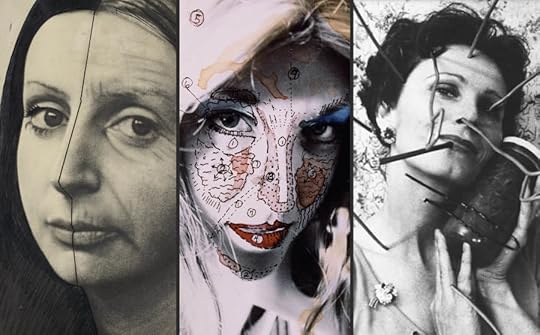 Today I look at some self-proclaimed avant garde "radical feminist" artists. In light of what I see a lot of around Facebook, I ask you a few simple questions. How can it be that in the year 2017, almost 2018, misogyny and mistreatment of women still seems to be prevalent, accepted, and propagated? I won't get into what provoked me last night surfing Facebook to post this, except to say it was a photo-shopped, 'ENHANCED' post that got the attention of both men and women alike. What worried me were the responses, both male and female, that were being made, derogatory comments, not admiration comments of the female body (and not-yet-women even), but an objectification and ridicule of it. Am I being too sensitive? I don't think so. Take a look at the current news right now and the scandals going on in the "civilized" country of the good ol' USA regarding the treatment of women. "What year is it?" I often ask myself. And why do posts like the one I saw last night get the most comments and interaction?
Today I look at some self-proclaimed avant garde "radical feminist" artists. In light of what I see a lot of around Facebook, I ask you a few simple questions. How can it be that in the year 2017, almost 2018, misogyny and mistreatment of women still seems to be prevalent, accepted, and propagated? I won't get into what provoked me last night surfing Facebook to post this, except to say it was a photo-shopped, 'ENHANCED' post that got the attention of both men and women alike. What worried me were the responses, both male and female, that were being made, derogatory comments, not admiration comments of the female body (and not-yet-women even), but an objectification and ridicule of it. Am I being too sensitive? I don't think so. Take a look at the current news right now and the scandals going on in the "civilized" country of the good ol' USA regarding the treatment of women. "What year is it?" I often ask myself. And why do posts like the one I saw last night get the most comments and interaction?Beyond that, take a look at these artists and the running theme that they needed to change their names and sometimes even appearance in order, as Lynn Hershman Leeson stated, "to simply to become 'themselves'.” Not pretty enough to too pretty, it seems women still can't earn a break. Hannah Wilke, for example, was critiqued for being too pretty to be taken seriously. "Because the conventionally stunning artist incorporated her own body into her work, often nude, she was constantly accused of being narcissistic and flaunting her appearance" and "encountered throughout her life that she was too beautiful." And Valie Export said that in order for women to achieve a self-defined view of themselves and a different view of the place of women in society, that women must participate in "the construction of reality via the building blocks of media-communication."
I'm sad to say that the post I saw last night and the commentary is not succeeding in building blocks but instead, knocking them down. What say you? Women should be able to be who they are, sexually, sensually, and intellectually. So why the constant sarcastic poking of the female body parts, as if they are nothing more, especially if they don't fit some stereotypical idea of beauty or poise?
"8 Radical, Feminist Artists From The 1970s Who Shattered The Male Gaze" by Priscilla Frank
READ FULL ARTICLE HERE
Published on December 02, 2017 09:27
December 1, 2017
There Is Something In Touching...A Book
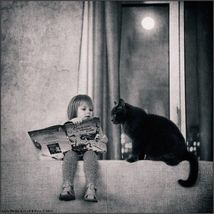 “Sometimes, you read a book and it fills you with this weird evangelical zeal, and you become convinced that the shattered world will never be put back together unless and until all living humans read the book.”
“Sometimes, you read a book and it fills you with this weird evangelical zeal, and you become convinced that the shattered world will never be put back together unless and until all living humans read the book.” ― John Green, The Fault in Our Stars
My thoughts, as usual, are not singular. So, read on!
The other day I was relaying a story to a friend about the first time I really knew I loved reading, like literally felt it in my bones, a visceral, bodily reaction. It happened during school, sophomore year, in the middle of class, and maybe it was the way the teacher read it aloud. I’m not sure. It wasn’t erotic in any sense (though it was romantic, having to do with nature, but was not a sexual poem or sensual words that are meant to titillate that way), and my body reacted much the way it reacts when I’m stimulated sensually or sexually.
I went to my bookshelf to see if I had a copy of said text and was dismayed to see that I had given it away to a local book collection drive, and when moving a few times, didn’t feel like packing them. I became quite sad. And I started to think about all the books I had given away, thinking at the time: I have a Kindle now; or if I need the story or quote, I’ll just look it up online; or there is no need for paper books anymore, we must consider the environment! I’m really upset with myself.
There is something organically beautiful about going back and reading a “hard” copy of a text, seeing your notes and scribbles, the weathered pages of love, your first reactions. I may still have the text at school in my office. I’m not sure. But my question to you is: Do you have that same reaction to reading? When you stumble across something that moves you, does your body viscerally react? And, do you still save your books? Or still prefer hard copies over electronic? Sigh…
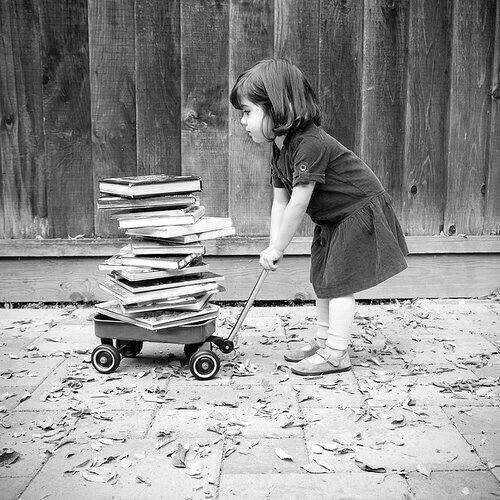
Published on December 01, 2017 09:59
November 30, 2017
Who Am I? Who Are You?
I am light and dark,
soft and rough.
I am nuanced and loud,
shy and strong.
I love,
vastly,
an ocean of pulsing veins,
and I mourn
in salted tributaries.
My heart beats
fast.
Staccato.
And sometimes,
it barely beats at all.
I am a writer,
highly emotive,
who happens to ink and record
the tapping of music
on a keyboard.
I am human.
Full-stop...
 Whenever I seek professional help (no, not that kind of professional help, marketing professional help!), I am invariably told: "R.B., you need to BRAND yourself." So I ask the talented Lilah E. Noir to send me a "signature," I visually adapt my social media accounts to match, and I attempt to provide consistent writing "columns" or weekly prompts in the form of #sixwords Saturday or #ShakespeareSunday or #writingromancelines or #foundpoetryFriday to everything in between.
Whenever I seek professional help (no, not that kind of professional help, marketing professional help!), I am invariably told: "R.B., you need to BRAND yourself." So I ask the talented Lilah E. Noir to send me a "signature," I visually adapt my social media accounts to match, and I attempt to provide consistent writing "columns" or weekly prompts in the form of #sixwords Saturday or #ShakespeareSunday or #writingromancelines or #foundpoetryFriday to everything in between.
And that's just the problem. I cannot categorize myself or exactly what it is I do. I am a writer who doesn't fit into a "branding" category. My mood and my writing runs the gamut on any given day. Those who have met me through The Nu Romantics (http://thenuromantics.weebly.com/) might know me as the sweet romantic; those who met me before I published "for cash" on Literotica might see me as the dark, dubcon erotic writer who later turned those stories into what has become the Thorne series and the Imogen series ; others may see me as a writer of BDSM with a fetish for orgasm denial (it is a fetish, sometimes, but that is a topic for another day!) if they followed my Natalie's Edge series ; and still others, who may have found me on Facebook as a "friend," may not even now I've published a damn thing!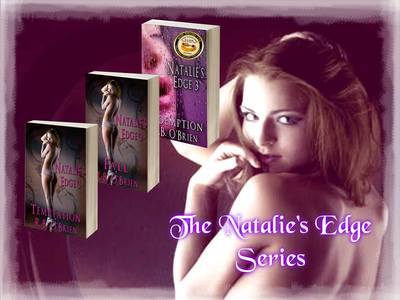
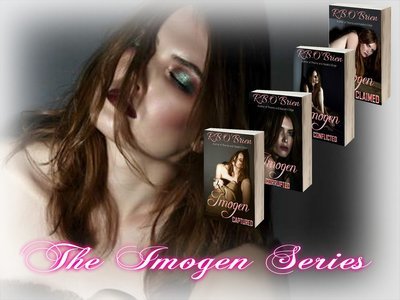
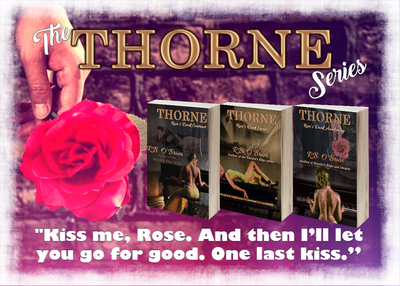 As I embark to finally compile some of my poetry in a published collection, I come back to branding. I haven't the faintest idea how to market myself as a "poet." I somehow got categorized as a writer of erotica, but that is the last category I would put myself. Though I write quite a bit of erotic stuff filled with kinky sex, it's never without a story; it's never without heart; and it's never without the contemplation of the dark and light of the human spirit. Instead, I guess I would say I write about the human condition, with all its nuanced flaws, the angst of relationships and folly, love and all its misunderstandings, and often, how those damaged find redemption and happiness.
As I embark to finally compile some of my poetry in a published collection, I come back to branding. I haven't the faintest idea how to market myself as a "poet." I somehow got categorized as a writer of erotica, but that is the last category I would put myself. Though I write quite a bit of erotic stuff filled with kinky sex, it's never without a story; it's never without heart; and it's never without the contemplation of the dark and light of the human spirit. Instead, I guess I would say I write about the human condition, with all its nuanced flaws, the angst of relationships and folly, love and all its misunderstandings, and often, how those damaged find redemption and happiness.
So who am I? I cannot be categorized or pigeon-holed. I'm human first. And I don't see the world in black and white or live that way or write that way. Most of us don't. Most of us just live and breathe and connect as human beings, even if it's only through the lovingly-worn pages of the creased corners of our favorite books. I am Rosemary O'Brien. My friends call me R.B. I am uniquely me, and I'll leave the branding to you.
soft and rough.
I am nuanced and loud,
shy and strong.
I love,
vastly,
an ocean of pulsing veins,
and I mourn
in salted tributaries.
My heart beats
fast.
Staccato.
And sometimes,
it barely beats at all.
I am a writer,
highly emotive,
who happens to ink and record
the tapping of music
on a keyboard.
I am human.
Full-stop...
 Whenever I seek professional help (no, not that kind of professional help, marketing professional help!), I am invariably told: "R.B., you need to BRAND yourself." So I ask the talented Lilah E. Noir to send me a "signature," I visually adapt my social media accounts to match, and I attempt to provide consistent writing "columns" or weekly prompts in the form of #sixwords Saturday or #ShakespeareSunday or #writingromancelines or #foundpoetryFriday to everything in between.
Whenever I seek professional help (no, not that kind of professional help, marketing professional help!), I am invariably told: "R.B., you need to BRAND yourself." So I ask the talented Lilah E. Noir to send me a "signature," I visually adapt my social media accounts to match, and I attempt to provide consistent writing "columns" or weekly prompts in the form of #sixwords Saturday or #ShakespeareSunday or #writingromancelines or #foundpoetryFriday to everything in between.And that's just the problem. I cannot categorize myself or exactly what it is I do. I am a writer who doesn't fit into a "branding" category. My mood and my writing runs the gamut on any given day. Those who have met me through The Nu Romantics (http://thenuromantics.weebly.com/) might know me as the sweet romantic; those who met me before I published "for cash" on Literotica might see me as the dark, dubcon erotic writer who later turned those stories into what has become the Thorne series and the Imogen series ; others may see me as a writer of BDSM with a fetish for orgasm denial (it is a fetish, sometimes, but that is a topic for another day!) if they followed my Natalie's Edge series ; and still others, who may have found me on Facebook as a "friend," may not even now I've published a damn thing!


 As I embark to finally compile some of my poetry in a published collection, I come back to branding. I haven't the faintest idea how to market myself as a "poet." I somehow got categorized as a writer of erotica, but that is the last category I would put myself. Though I write quite a bit of erotic stuff filled with kinky sex, it's never without a story; it's never without heart; and it's never without the contemplation of the dark and light of the human spirit. Instead, I guess I would say I write about the human condition, with all its nuanced flaws, the angst of relationships and folly, love and all its misunderstandings, and often, how those damaged find redemption and happiness.
As I embark to finally compile some of my poetry in a published collection, I come back to branding. I haven't the faintest idea how to market myself as a "poet." I somehow got categorized as a writer of erotica, but that is the last category I would put myself. Though I write quite a bit of erotic stuff filled with kinky sex, it's never without a story; it's never without heart; and it's never without the contemplation of the dark and light of the human spirit. Instead, I guess I would say I write about the human condition, with all its nuanced flaws, the angst of relationships and folly, love and all its misunderstandings, and often, how those damaged find redemption and happiness. So who am I? I cannot be categorized or pigeon-holed. I'm human first. And I don't see the world in black and white or live that way or write that way. Most of us don't. Most of us just live and breathe and connect as human beings, even if it's only through the lovingly-worn pages of the creased corners of our favorite books. I am Rosemary O'Brien. My friends call me R.B. I am uniquely me, and I'll leave the branding to you.
Published on November 30, 2017 03:51
November 29, 2017
Louisa May Alcott and Transcendalism
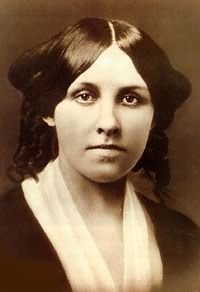 Happy birthday, Louisa May Alcott! Today I revisit something I wrote for The Nu Romantics Facebook page, something we call #LAPH (Literature, Art, Photography, and History.)
Happy birthday, Louisa May Alcott! Today I revisit something I wrote for The Nu Romantics Facebook page, something we call #LAPH (Literature, Art, Photography, and History.)Louisa May Alcott published her very first in 1852 in the Saturday Evening Gazette, “The Rival Painters: A Story of Rome.” Of course, we know her best for her book Little Women (1868) and The Fruitlands in Harvard, MA, a now beautiful museum and place to visit, literally in my backyard (okay maybe not literally but close enough!).
First purchased by Charles Lane, a farm of 90 acres and old red farmhouse to start a communal utopia based on principles of transcendentalism with Louisa’s father, Amos Bronson Alcott, The Fruitlands “experiment” lasted only 7 months. A total of eleven adults eventually joined Fruitlands (some sources say a dozen and of course, there were several children), but it doesn’t detract from what they thought and did.
I have always been fascinated with transcendentalists as thinkers and transcendentalism as a literary movement. Sound familiar? Transcendentalism emerged from English and German Romanticism, Biblical criticism, the skepticism of David Hume, and the transcendental philosophy of Immanuel Kant and German Idealism, to name a few. It was also influenced by Hindu texts on philosophy of the mind and spirituality, especially the Upanishads.
Here are some basics:
1. First, they were looking for literary independence from England. They deliberately went about creating literature, essays, novels, philosophy, poetry, and other writing that were clearly different from anything from England, France, Germany, or any other European nation.
2. Most of the Transcendentalists became involved as well in social reform movements, especially anti-slavery and women's rights.
3. Transcendentalists were strong believers in the power of the individual. Their beliefs were closely linked with those of the Romantics, but differ by an attempt to embrace or, at least, to not oppose the empiricism of science.
4. A core belief of transcendentalism is in the inherent goodness of people and nature. Emerson believed that people were naturally good and that everyone's potential was limitless. He inspired his colleagues to look into themselves, into nature, into art, and through work for answers to life's most perplexing questions.
5. They believed in the soul (the oversoul) as: the human soul is immortal, and immensely vast and beautiful; human conscious ego is slight and limited in comparison to the soul, even though we habitually mistake our ego for our true self; and at some level, the souls of all people are connected, and this includes everything, down to nature.
6. Emerson went further to describe nature as the closest experience there is to experiencing the presence of God. To truly appreciate nature, one must not only look at it and admire it, but also be able to feel it taking over the senses. This process requires solitude, in uninhabited places like the woods. His “transparent eyeball” is a representation of an eye that is absorbent rather than reflective, and therefore takes in all that nature has to offer. Emerson strongly espoused that the individual become one with nature.
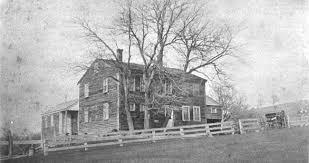
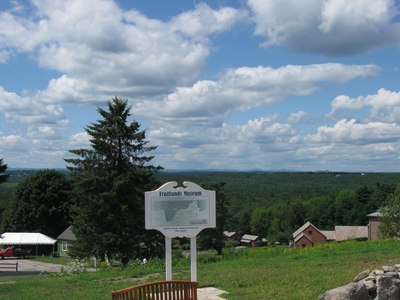
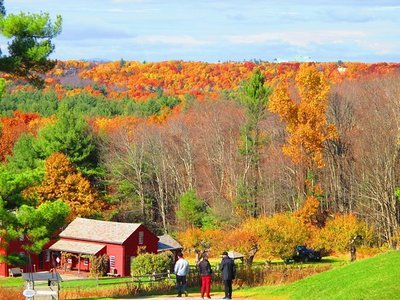 The Fruitlands took the philosophy to heart and were quite austere, too austere and impractical. The economy of Fruitlands was based on a single principle: abstinence from worldly activity: The members of Fruitlands never tried to produce more goods than they could use; and they believed that a surplus of material goods would inhibit spirituality.
The Fruitlands took the philosophy to heart and were quite austere, too austere and impractical. The economy of Fruitlands was based on a single principle: abstinence from worldly activity: The members of Fruitlands never tried to produce more goods than they could use; and they believed that a surplus of material goods would inhibit spirituality.They were also vegan. Absolutely no meat or other animal products were eaten (hence the name Fruitlands). In fact, nothing from animals (including wool, honey, wax, or manure) nor even animal labor were used by the community. The founders felt nothing should be taken from animals, for they should be “as free as humans.” Bronson Alcott’s idealism was so strong, in fact, that he would not permit canker-worms to be disturbed, and forbade the planting of such vegetables and roots as grow downward instead of upward into the air!
Furthermore, the reformers believed that spiritual freedom depended on dispensing with the labor of animals, and so, because many on the commune were philosophers rather than farmers, the experiment only lasted seven months. Many saw the community as an opportunity to be housed and fed while sitting in apple trees writing poetry or thinking great thoughts. After all, it is much easier to dream of utopias than to plant seeds on your hands and knees. Then, too, often the philosophers would travel off to lecture and spread the news of the utopia, leaving Mrs. Alcott, the children, and the only practical man, Palmer, to do all the work.
Louisa May Alcott wrote about Fruitlands in her short piece, “Transcendental Wild Oats.” Louisa was only a child at the time, but she stored the memories of Fruitlands and later wrote this story about her father’s experiment. Bronson was unable to support the family and, afterward, Louisa dedicated most of her life to supporting them. After the publication of her first story, she made a living off stories for more than two decades. And although Louisa grew up in an extraordinary political atmosphere, thanks to her father, who was friends with some of the most influential thinkers of his time — Emerson, Thoreau, Hawthorne, Fuller, Whitman, etc.--he never managed to earn a living or take care of his family.
As Louisa put it, "He was a man in a balloon, with his family holding the ropes trying to hold him down to Earth. He seemed to live on air and in the air, and had no concern about earning a living. It didn't seem to bother him that his family was literally starving" (NPR: American Lives). She became the breadwinner and the caretaker, an ardent supporter of women’s issues and spent most of her life caring for her family financially, emotionally, and physically. Her father died in March 1888, and she followed him just two days later.
So, if you’ve read this far, or even skimmed, I think it’s safe to say, that balance is essential. We may want to change the world, we may want to live out our ideals, but we do have to function in society and the real world. My favorite movie is Captain Fantastic. I challenge you to watch it. I think it does a pretty good job at exploring that very balance that is, for lack of better words, uniquely human.
Thanks for reading! xo
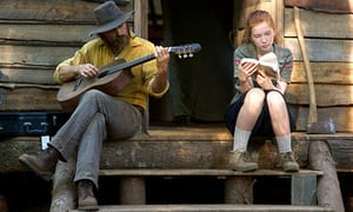
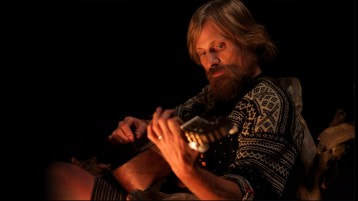
Published on November 29, 2017 03:34
November 27, 2017
PIECES of US: The Nu Romantics Anthology
It's finally here!
The Nu Romantics was formed to revolt against the preconceived notions of ROMANCE and to elucidate, through all mediums of art, particularly writing, that the
"romantic" is found in more than happy endings, that it can be found in everything
from nature to pain to the erotic to even death...
Read the article here that started it all: CLICK HEREPieces of Us …where light and dark come together in a beautiful mosaic.
Like the pieces of a puzzle, both smooth and jagged, fitting together to create a beautiful picture, or a thousand snowflakes falling together against the blackest of nights, so, too, do The Nu Romantics come together to bring you a one-of-a-kind collection of art, poetry, short stories, and flash fiction. Written from the heart--or heartbreak-- of its creators, The Nu Romantics redefine romance.
Delve into the minds and emotions of these romantics as word by word, piece by piece, they tear apart preconceived notions of the romantic and put them back together into a beautiful work of art they define as nu romanticism, where the romantic is found in life, love, pain, death, the unexplained, and everything in between.
Pieces of Us is a collection of short stories, poetry, and flash fiction, encompassing nu romanticism across multiple themes: Hope and New Beginnings; Supernatural, Unexplained, and Horror; Erotic; Romantic; and Nostalgia, Longing, and Heartbreak.
The Nu Romantics: Redefining Romance.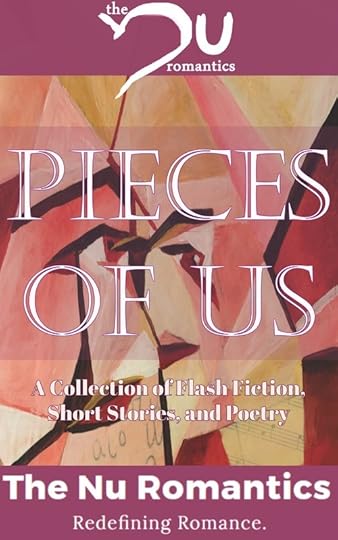
The Nu Romantics was formed to revolt against the preconceived notions of ROMANCE and to elucidate, through all mediums of art, particularly writing, that the
"romantic" is found in more than happy endings, that it can be found in everything
from nature to pain to the erotic to even death...
Read the article here that started it all: CLICK HEREPieces of Us …where light and dark come together in a beautiful mosaic.
Like the pieces of a puzzle, both smooth and jagged, fitting together to create a beautiful picture, or a thousand snowflakes falling together against the blackest of nights, so, too, do The Nu Romantics come together to bring you a one-of-a-kind collection of art, poetry, short stories, and flash fiction. Written from the heart--or heartbreak-- of its creators, The Nu Romantics redefine romance.
Delve into the minds and emotions of these romantics as word by word, piece by piece, they tear apart preconceived notions of the romantic and put them back together into a beautiful work of art they define as nu romanticism, where the romantic is found in life, love, pain, death, the unexplained, and everything in between.
Pieces of Us is a collection of short stories, poetry, and flash fiction, encompassing nu romanticism across multiple themes: Hope and New Beginnings; Supernatural, Unexplained, and Horror; Erotic; Romantic; and Nostalgia, Longing, and Heartbreak.
The Nu Romantics: Redefining Romance.

Published on November 27, 2017 18:39
November 16, 2017
What Am I Thankful For?
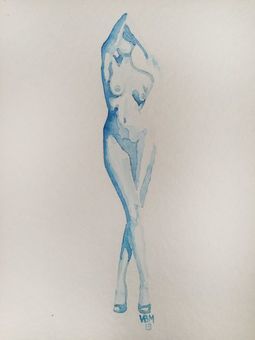 With Thanksgiving coming up next week, it does make you ponder what you’re thankful for. I know some days seem impossible and grueling, days we want to give up. But I do know I have a lot to be thankful for. And my “woes” almost seem petty when I really think about it. But the mind—it can be a dark place, our worst enemy, the mirror we talk to, sometimes spitting venom.
With Thanksgiving coming up next week, it does make you ponder what you’re thankful for. I know some days seem impossible and grueling, days we want to give up. But I do know I have a lot to be thankful for. And my “woes” almost seem petty when I really think about it. But the mind—it can be a dark place, our worst enemy, the mirror we talk to, sometimes spitting venom.So today I thought I’d stop and pause to focus on what I’m grateful for. I could write all the cliched things I should be thankful for and am, but I choose something else. And ask you to join me in sharing something, or someone, you are grateful for; sometimes, it’s even a negative person that has shown us the direction we need to take that is productive rather than debilitating, and even that is something to be thankful for.
Today I am going to focus on being thankful for being a woman. Many ask: If you could be the opposite sex for one day, what would be the first thing you would do? A fun exercise, but it makes me realize I love my femininity. I enjoy the daily emotions I go through, even the negative ones. I feel. I empathize. I think women have that gift at its highest level. I think it’s our greatest treasure. I don’t live life in dull hues but dark ones and bright ones and all the hues in between. Some may think being emotional is a flaw; perhaps they are right. But e.e. cummings once wrote, “since feeling is first,” and I think he’s right. If we don’t stop and feel, why are we living? Love is the ultimate in this spectrum of emotions women are capable of feeling. The meeting of someone, the fall, the ultimate in finding true love…it’s what makes us human, it’s really why we hope and dream. It’s why we breathe. Even heartache has its place as we come down from that high. And they are all emotions I think women are graced to feel on high throttle. (And perhaps a lot of men too.)
On a more superficial level, I also love my curves and clothes and shoes; I love the way adrenaline from dancing or love-making reaches my cheeks. I love my long hair and the way his fingers feel running through it. I like to touch my lips and look at them look in several different shades of lipstick And yup. As you know, I love the color pink.
My life isn’t perfect. I am not perfect. So far from it. But I do think my gift of femininity allows me to feel in uniquely womanly ways. And so, however I came on this Earth to live as a woman, that is what I am grateful for.
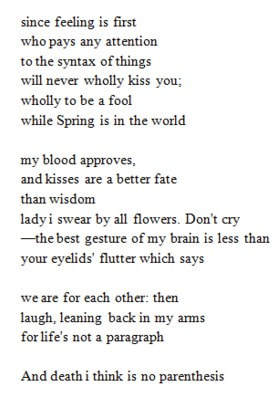
Published on November 16, 2017 17:27
November 9, 2017
When You're in Love
“what is stronger than the human heart which shatters over and over and still lives”
― Rupi Kaur
Life is a funny thing, isn't it? When you're in love? The mixed myriad of emotions. It's exhilarating but also completely frightening. It's almost painful. How can that be? How can something so beautiful and exquisite that makes you feel things so vividly, things you have always longed to feel, also produce pangs of longing or fear or an intensity that just makes you want to run?
I think I know. It's because you know, deep down you know, this too shall pass--a phrase usually used to overcome pain--oh the irony! It won't last. It's bound to end. Does that mean you shouldn't allow yourself to love? (Romantically I mean.) Somedays, I think, yes, as I watch friends I love suffer at the hands of Love, hurt by people that should have cared more for them, their well-being, but instead cause such destruction and pain for them, I, myself, having been hurt by those I have loved or thought I loved.
How about you? Has Love hurt you? How do you get past it? How do you get over a lover who was supposed to care for you but who does the opposite? People always answer Time. But I wonder if going in knowing, really intellectually knowing, it won't last is what will save you. And what will, in the end, ensure that you don't stop yourself from diving back under again and again, breath held to let go, even in the awareness of the pain you know it will inevitably cause.
Am I being too pessimistic? Perhaps. And right now, I will simply close my eyes and try to live in this moment, the only moment I know exists.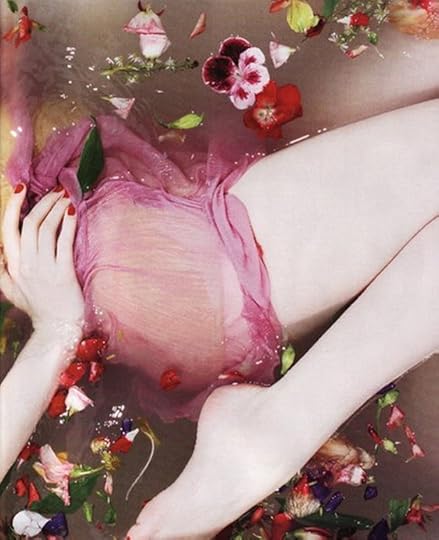
― Rupi Kaur
Life is a funny thing, isn't it? When you're in love? The mixed myriad of emotions. It's exhilarating but also completely frightening. It's almost painful. How can that be? How can something so beautiful and exquisite that makes you feel things so vividly, things you have always longed to feel, also produce pangs of longing or fear or an intensity that just makes you want to run?
I think I know. It's because you know, deep down you know, this too shall pass--a phrase usually used to overcome pain--oh the irony! It won't last. It's bound to end. Does that mean you shouldn't allow yourself to love? (Romantically I mean.) Somedays, I think, yes, as I watch friends I love suffer at the hands of Love, hurt by people that should have cared more for them, their well-being, but instead cause such destruction and pain for them, I, myself, having been hurt by those I have loved or thought I loved.
How about you? Has Love hurt you? How do you get past it? How do you get over a lover who was supposed to care for you but who does the opposite? People always answer Time. But I wonder if going in knowing, really intellectually knowing, it won't last is what will save you. And what will, in the end, ensure that you don't stop yourself from diving back under again and again, breath held to let go, even in the awareness of the pain you know it will inevitably cause.
Am I being too pessimistic? Perhaps. And right now, I will simply close my eyes and try to live in this moment, the only moment I know exists.

Published on November 09, 2017 04:45
THURSDAY THOUGHTS Entry November 9th
“what is stronger than the human heart which shatters over and over and still lives”
― Rupi Kaur
Join me for my #ThursdayThoughts.
Life is a funny thing, isn't it? When you're in love? The mixed myriad of emotions. It's exhilarating but also completely frightening. It's almost painful. How can that be? How can something so beautiful and exquisite that makes you feel things so vividly, things you have always longed to feel, also produce pangs of longing or fear or an intensity that just makes you want to run?
I think I know. It's because you know, deep down you know, this too shall pass--a phrase usually used to overcome pain--oh the irony! It won't last. It's bound to end. Does that mean you shouldn't allow yourself to love? (Romantically I mean.) Somedays, I think, yes, as I watch friends I love suffer at the hands of Love, hurt by people that should have cared more for them, their well-being, but instead cause such destruction and pain for them, I, myself, having been hurt by those I have loved or thought I loved.
How about you? Has Love hurt you? How do you get past it? How do you get over a lover who was supposed to care for you but who does the opposite? People always answer Time. But I wonder if going in knowing, really intellectually knowing, it won't last is what will save you. And what will, in the end, ensure that you don't stop yourself from diving back under again and again, breath held to let go, even in the awareness of the pain you know it will inevitably cause.
Am I being too pessimistic? Perhaps. And right now, I will simply close my eyes and try to live in this moment, the only moment I know exists.
― Rupi Kaur
Join me for my #ThursdayThoughts.
Life is a funny thing, isn't it? When you're in love? The mixed myriad of emotions. It's exhilarating but also completely frightening. It's almost painful. How can that be? How can something so beautiful and exquisite that makes you feel things so vividly, things you have always longed to feel, also produce pangs of longing or fear or an intensity that just makes you want to run?
I think I know. It's because you know, deep down you know, this too shall pass--a phrase usually used to overcome pain--oh the irony! It won't last. It's bound to end. Does that mean you shouldn't allow yourself to love? (Romantically I mean.) Somedays, I think, yes, as I watch friends I love suffer at the hands of Love, hurt by people that should have cared more for them, their well-being, but instead cause such destruction and pain for them, I, myself, having been hurt by those I have loved or thought I loved.
How about you? Has Love hurt you? How do you get past it? How do you get over a lover who was supposed to care for you but who does the opposite? People always answer Time. But I wonder if going in knowing, really intellectually knowing, it won't last is what will save you. And what will, in the end, ensure that you don't stop yourself from diving back under again and again, breath held to let go, even in the awareness of the pain you know it will inevitably cause.
Am I being too pessimistic? Perhaps. And right now, I will simply close my eyes and try to live in this moment, the only moment I know exists.

Published on November 09, 2017 04:45
What's in a Color Anyway?
Color Good morning, friends. You know when people ask you: What is your favorite color? And at first, you think it's such a silly or simple question. But is it? I don't think so, because it begs the question of why. Why has it come to be your favorite color? We wouldn't have one if it didn't speak to a part of who we are. Sometimes, it's the simplest questions that shed the most light. So I ask you: What is your favorite color? Why?
For me, I have two, but I'll focus on the one that gets the most guff. When someone asks me that question, immediately, I say, "Pink." And immediately people think: What a girl! Yes. And no. Pink reminds me of my love for dance. My youth. The innocence of being young. Tutus. Strawberry frosting on a vanilla cake (my favorite). And lipstick. I love lipstick. It also reminds me that I should take pride in my feminine traits, in being a woman. There is nothing remotely wrong with enjoying femininity. Curves. Hips. Lips. Empathy. Vulnerability. Sensuality. Patience. Intuition.
But even beyond all that? Remember the kid books: Pinkalicious? The brother loved pink but hid it? That. That is why I also love pink. We need to take pink back. It's not a bad thing. And it shouldn't mean "girly." And boys who like it shouldn't be labeled as inferior. "Stop acting like a girl" pisses me off. Pink is a damn pretty color. Ever see a pink sunrise? Coral in the sand? How about cherry blossoms? Or Rose Champagne? A pink rose? Or a pearl? Exactly.
And that, my friends, is my thought for the day.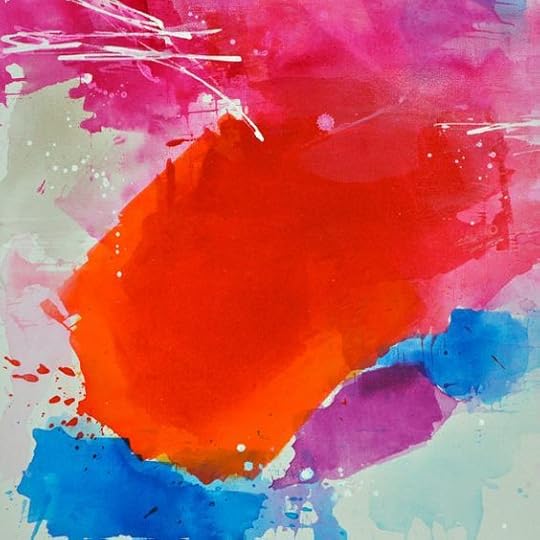
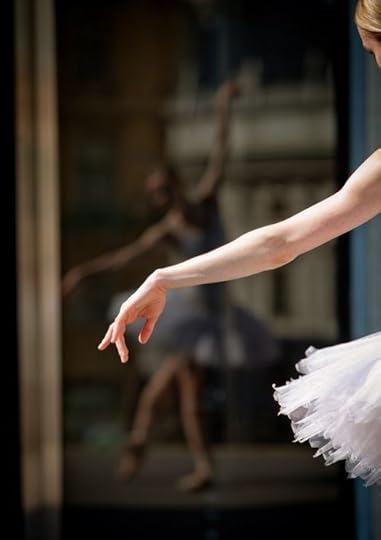
For me, I have two, but I'll focus on the one that gets the most guff. When someone asks me that question, immediately, I say, "Pink." And immediately people think: What a girl! Yes. And no. Pink reminds me of my love for dance. My youth. The innocence of being young. Tutus. Strawberry frosting on a vanilla cake (my favorite). And lipstick. I love lipstick. It also reminds me that I should take pride in my feminine traits, in being a woman. There is nothing remotely wrong with enjoying femininity. Curves. Hips. Lips. Empathy. Vulnerability. Sensuality. Patience. Intuition.
But even beyond all that? Remember the kid books: Pinkalicious? The brother loved pink but hid it? That. That is why I also love pink. We need to take pink back. It's not a bad thing. And it shouldn't mean "girly." And boys who like it shouldn't be labeled as inferior. "Stop acting like a girl" pisses me off. Pink is a damn pretty color. Ever see a pink sunrise? Coral in the sand? How about cherry blossoms? Or Rose Champagne? A pink rose? Or a pearl? Exactly.
And that, my friends, is my thought for the day.


Published on November 09, 2017 04:41
#ThursdayThoughts November 2nd Entry
Color Good morning, friends. You know when people ask you: What is your favorite color? And at first, you think it's such a silly or simple question. But is it? I don't think so, because it begs the question of why. Why has it come to be your favorite color? We wouldn't have one if it didn't speak to a part of who we are. Sometimes, it's the simplest questions that shed the most light. So I ask you: What is your favorite color? Why?
For me, I have two, but I'll focus on the one that gets the most guff. When someone asks me that question, immediately, I say, "Pink." And immediately people think: What a girl! Yes. And no. Pink reminds me of my love for dance. My youth. The innocence of being young. Tutus. Strawberry frosting on a vanilla cake (my favorite). And lipstick. I love lipstick. It also reminds me that I should take pride in my feminine traits, in being a woman. There is nothing remotely wrong with enjoying femininity. Curves. Hips. Lips. Empathy. Vulnerability. Sensuality. Patience. Intuition.
But even beyond all that? Remember the kid books: Pinkalicious? The brother loved pink but hid it? That. That is why I also love pink. We need to take pink back. It's not a bad thing. And it shouldn't mean "girly." And boys who like it shouldn't be labeled as inferior. "Stop acting like a girl" pisses me off. Pink is a damn pretty color. Ever see a pink sunrise? Coral in the sand? How about cherry blossoms? Or Rose Champagne? A pink rose? Or a pearl? Exactly.
And that, my friends, is my thought for the day. #ThursdayThoughts

For me, I have two, but I'll focus on the one that gets the most guff. When someone asks me that question, immediately, I say, "Pink." And immediately people think: What a girl! Yes. And no. Pink reminds me of my love for dance. My youth. The innocence of being young. Tutus. Strawberry frosting on a vanilla cake (my favorite). And lipstick. I love lipstick. It also reminds me that I should take pride in my feminine traits, in being a woman. There is nothing remotely wrong with enjoying femininity. Curves. Hips. Lips. Empathy. Vulnerability. Sensuality. Patience. Intuition.
But even beyond all that? Remember the kid books: Pinkalicious? The brother loved pink but hid it? That. That is why I also love pink. We need to take pink back. It's not a bad thing. And it shouldn't mean "girly." And boys who like it shouldn't be labeled as inferior. "Stop acting like a girl" pisses me off. Pink is a damn pretty color. Ever see a pink sunrise? Coral in the sand? How about cherry blossoms? Or Rose Champagne? A pink rose? Or a pearl? Exactly.
And that, my friends, is my thought for the day. #ThursdayThoughts


Published on November 09, 2017 04:41



